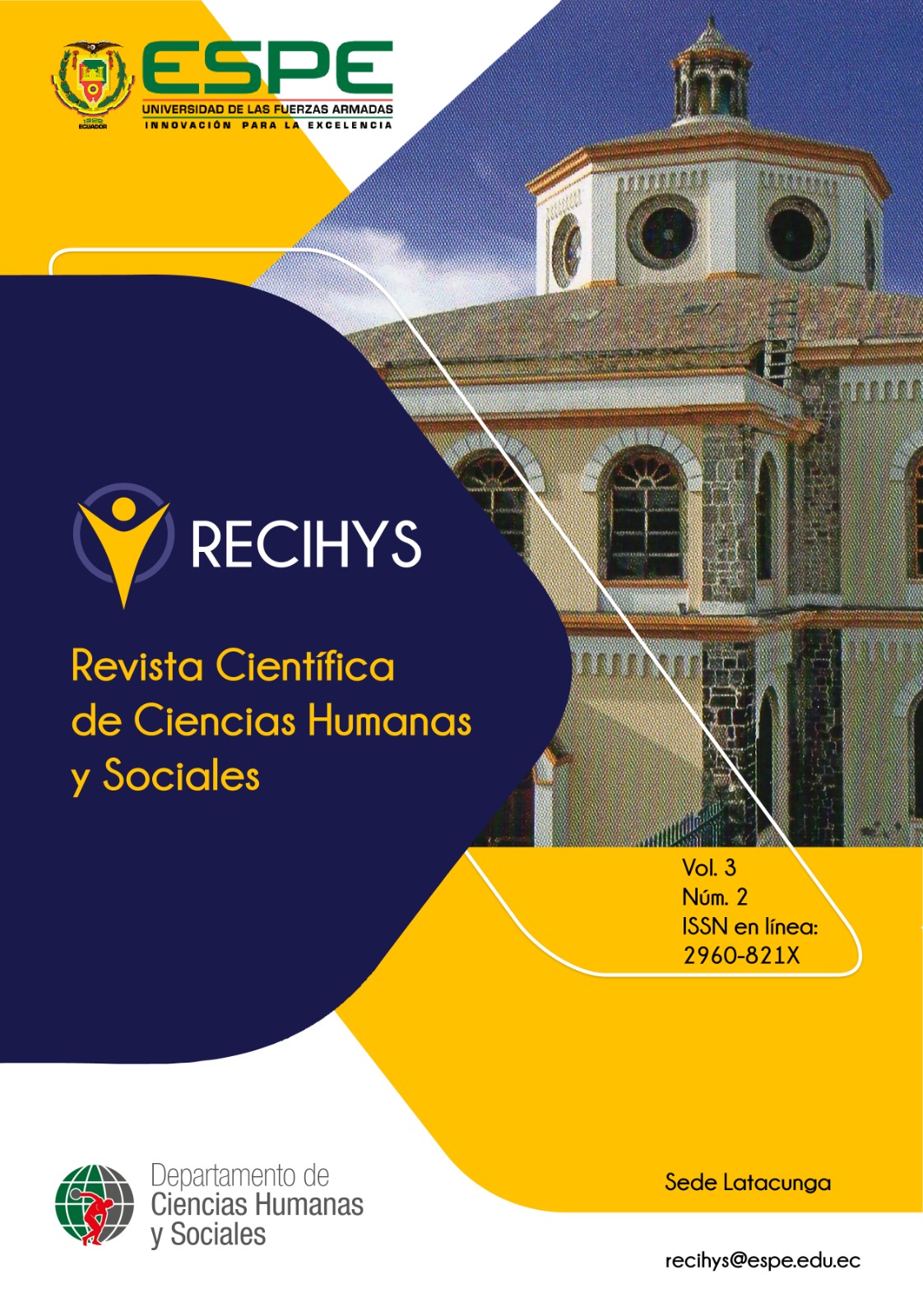Communicative practices of older adults in social networks in the Antonio José Holguín Parish
Main Article Content
Abstract
This research analyzes the communicative practices of older adults in social networks in the Antonio José Holguín Parish, establishing the objective of understanding the level of digital participation, the limitations they face and the opportunities in the use of ICTs. A mixed approach (qualitative and quantitative) was used, collected through surveys applied to 191 participants and four life histories, which facilitated a complete view of the phenomenon. The results show that 58% of older adults use some social network, although it is limited and focuses on family communication. Facebook and WhatsApp are the most used platforms, however, 68% state that they do not have knowledge about the use of social networks and 49% mention that they do not have family support on social networks. Similarly, it was identified that they have ambiguous attitudes in the technological context, ranging from disinterest and fear, while 68% of the population is interested in training in basic topics. Concluding that the digital inclusion of older adults is limited to structural, social and emotional factors, for which it requires digital literacy techniques that are in accordance with the reality of the parish.
Downloads
Article Details
Authors who publish in this journal agree to the following terms: Authors retain the copyright and guarantee the journal the right to be the first publication of the work, as well as, licensed under a Creative Commons Attribution License that allows others share the work with an acknowledgment of the authorship of the work and the initial publication in this journal. Authors may separately establish additional agreements for the non-exclusive distribution of the version of the work published in the journal (for example, placing it in an institutional repository or publishing it in a book), with acknowledgment of its initial publication in this journal. Authors are allowed and encouraged to disseminate their work electronically (for example, in institutional repositories or on their own website) before and during the submission process, as it may lead to productive exchanges as well as further citation earliest and oldest of published works.
How to Cite
References
Arroyave, P., Ocampo, J., Sánchez, S., & Vega, O. (2020). Inclusión digital como opción aportante al envejecimiento activo. E-Ciencias de la Información, 10(2), 123-136. doi:https://doi.org/10.15517/eci.v10i2.39522
Calle-Cordova, M., Tenecota-Huerta, L., & Arevalo-Herrera, D. (2024). Políticas de Inclusión Digital en la Educación: Perspectivas para el Ecuador. RTED, 17(2), 355–361. doi:https://doi.org/10.37843/rted.v17i2.564
Campos, H. (2018). Uso, creencias y actitudes sobre las TIC en los procesos de enseñanza-aprendizaje del personal académico de un Centro Público de Investigación. Caso: CIBNOR. Universidad Internacional Iberoamericana.
Cardoso, C., Martin, A., & Saldaño, V. (2017). Los adultos mayores y las redes sociales: Analizando experiencias para mejorar la interacción. Universidad de Patagonia Austral. Obtenido de https://dialnet.unirioja.es/descarga/articulo/6089345.pdf
Chinchuña, M. (2018). Sentidos de vida del adulto mayor en la parroquia San Juan de Pastocalle: Un enfoque comunicacional. Latacunga: Universidad Técnica de Cotopaxi.
Cunalata-Altamirano, D., & Chiliquinga-Véjar, L. (2024). Uso de redes sociales tecnológicas y relaciones familiares en adultos mayores. Revista Científica Y Arbitrada De Ciencias Sociales Y Trabajo Social: Tejedora., 7(13), 2697-3626. doi:https://doi.org/10.56124/tj.v7i13.006
Del Prete, A., & Redon, S. (2020). Las redes sociales on-line: Espacios de socialización y definición de identidad. Psicoperspectivas, 19(1). doi:http://dx.doi.org/10.5027/psicoperspectivas-vol19-issue1-fulltext-1834
Fernández-Ardèvol, M., & Ivan, L. (2020). Older people go online: Towards a comparative framework for analysing digital inclusion. . Nordicom Review, 41(1), 33-50. doi: https://doi.org/10.2478/nor-2020-0003
Guerrero, R., Acevedo, M., & Reyes, B. (2023). Redes sociales y adultos mayores, apromimaxión tecnología y oportunidad de desarrollo en la vejez. Cogitare Enfermagem, 28, 1-7. doi:dx.doi.org/10.1590/ce.v28i0.91176
Gutiérrez-Rubí, A., & Moreno, I. (2021). Estrategias de inclusión digital para mayores: guía de intervención. . Fundación Telefónica.
Hernández, C., & Moral, M. (2024). Uso de las redes sociales virtuales, percepción de soledad y habilidades sociales en jóvenes adultos españoles de la generación Z y la generación Y. Acta Colombiana de Psicología, 27(1), 229-245. doi:https://doi.org/10.14718/ACP.2024.27.1.13
Loos, E., Ivan, L., & Zajicek, M. (2021). Older adults and social media: Key factors influencing technology adoption. . Springer.
Martínez-Pecino, R., Lera, M., & García, M. (2022). Digital competence and psychological wellbeing in older adults: The mediating role of digital inclusion. . Educational Gerontology, 48(2), 81-93. doi:https://doi.org/10.1080/03601277.2021.2016702
Monge, J. (2022). Uso de Redes Sociales y Envejecimiento Activo. Ambato: Universidad Técnica de Ambato.
Mora-Chavarría, J., & González-Matamoros, R. (2022). Inclusión digital de la persona adulta mayor: Una revisión documental. Revista Latinoamericana de Derechos Humanos, 33(1). doi:https://doi.org/10.15359/rldh.33-1.11
Quinde, B., Mosquera, M., & Vázquez, A. (2020). Brecha Digital en Adultos Mayores: Accesibilidad Tecnológica y Redes Sociales. GIGAPP Estudios Working Papers, 7(166-182), 744-757. doi:https://www.gigapp.org/ewp/index.php/GIGAPP-EWP/article/view/220
Reyes, R., & Prado, A. (2020). Las Tecnologías de Información y Comunicación como herramienta para una educación primaria inclusiva. Revista Educación, 44(32), 1-32. doi:https://doi.org/10.15517/revedu.v44i2.38781
Rivoir, A., Morales, A., & Casamayou, A. (2019). Usos y percepciones de las tecnologías digitales en personas mayores. Limitaciones y beneficios para su calidad de vida. Revista Austral de Ciencias Sociales, 36, 295-313. Obtenido de https://www.redalyc.org/journal/459/45961140015/html/
Sánchez-Valle, M., González-Carrasco, M., & Rojas, M. (2020). La exclusión digital como factor de vulnerabilidad social en la vejez. . Revista Española de Geriatría y Gerontología, 55(4), 223-229. doi:https://doi.org/10.1016/j.regg.2019.11.001
Unesco. (6 de Febrero de 2024). Qué necesita saber acerca del aprendizaje digital y la transformación de la educación. Obtenido de Organización de las Naciones Unidas para la Educación, la Ciencia y la Cultura: https://www.unesco.org/es/digital-education/need-know

